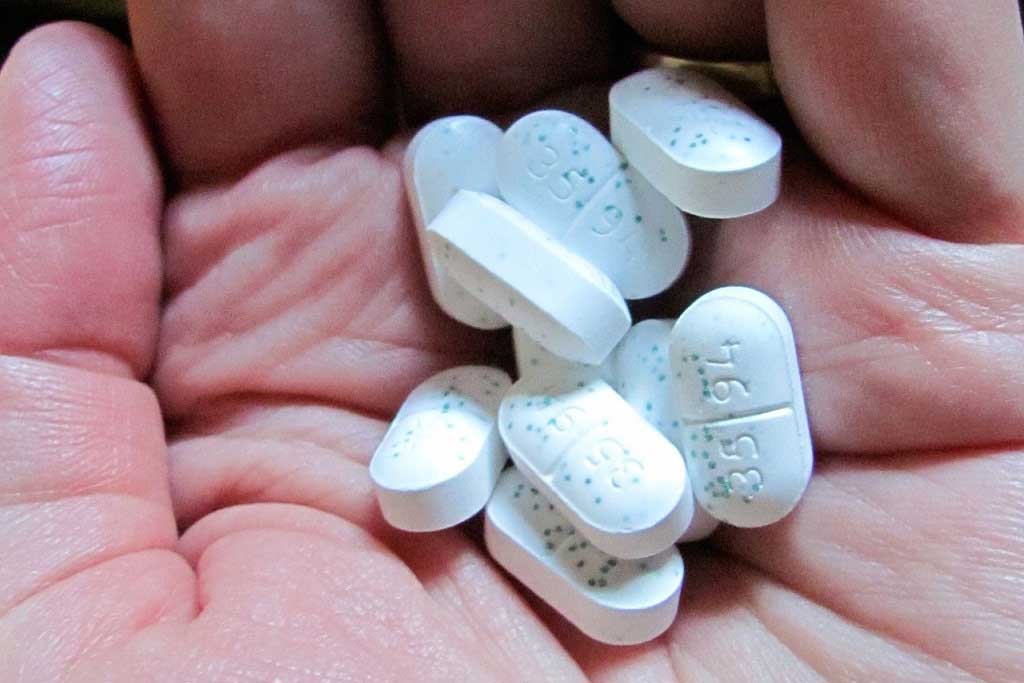Prescriptions: '1 in 20 has an error'
Older people
GPs may be regularly making mistakes when prescribing medicines, according to a high-profile report published today by the General Medical Council. The report found that mistakes in areas such as dosage and timing were common, although...
GPs may be regularly making mistakes when prescribing medicines, according to a high-profile report published today by the General Medical Council. The report found that mistakes in areas such as dosage and timing were common, although it also found that “serious” errors were unusual.
The report has received a great deal of press interest, with The Daily Telegraph reporting that “millions” of prescriptions contain dangerous errors, while the Daily Mail reported that “GP drug blunders” are hitting hundreds of thousands of elderly patients. The study examined over 6,000 prescriptions issued at a range of GP surgeries in England. It looked at factors such as dosage, record keeping and giving patients appropriate check-ups to assess the impact of their medication. Researchers found prescription errors had been made for one in eight patients overall, and four in ten patients over 75 years of age. In all, 1 in 20 prescriptions written featured an error. Of the errors, 42% were judged to be minor, 54% moderate and 4% severe.
In response to the results, the report recommends better GP training on safe prescribing, closer working between GPs and pharmacists and more effective use of computer systems to flag potential mistakes and reduce prescription errors.
What did the report examine?
The report examined how common prescribing errors are in general practice, what types of errors are made, what causes them and what can be done to prevent them. It also looked at “monitoring errors”, where patients prescribed a particular drug are not given appropriate checks to monitor its effects and side effects. For example, patients prescribed a drug to lower blood pressure might not be given regular blood pressure tests to ensure the problem is being adequately controlled.
Called The PRACtICe Study (PRevalence And Causes of prescrIbing errors in general practiCe), it was published by the General Medical Council (GMC), which is responsible for standards of medical practice in the UK. It was authored by researchers and doctors from a number of academic institutions.
What kind of errors did it look for?
The study looked at both prescribing errors and monitoring errors. Researchers defined a prescribing error as occurring when “as a result of a prescribing decision or prescription writing process … there is a significant reduction in the probability of treatment being timely or effective or an increase in the risk of harm”. Monitoring errors occur when “a prescribed medicine is not monitored in the way which would be considered acceptable in general practice”.
How was it performed?
The study took place in 15 GP surgeries from three areas of England, thought to be representative of all general practices. Researchers took a random 2% sample of patients from each practice, giving 1,777 patients in all, which were deemed to be representative of the population.
The medical records of these patients were investigated to identify potential prescribing or monitoring errors. Researchers looked at over 6,048 prescriptions that had been issued in the previous 12 months. The details of all potential errors were discussed by a panel including one GP, a clinical pharmacologist and three pharmacists, to decide whether they constituted an error. The panel also considered how the error should be classified. The severity of errors was judged on a validated 10-point scale, from 0 (no risk of harm) to 10 (death), by a separate panel of two GPs, two pharmacists and one clinical pharmacologist.
The data were then analysed using statistical software.
To investigate the possible causes of prescribing and monitoring errors, and to identify solutions, researchers consulted 34 GPs with prescribing responsibilities to discuss 70 of the errors they had identified, including the most serious ones. They also conducted six focus groups on possible causes, involving 46 members of primary healthcare teams, and undertook an analysis of potential causes (primary healthcare is care generally given at the first point of contact for patients, such as in GP surgeries or community pharmacies).
Researchers also looked at previous studies examining prescribing errors by GPs. They updated a systematic review on the subject and undertook a further systematic review on potential measures that might reduce the potential harms caused when prescribing medication.
What were the results?
The main findings of the recent study are outlined below:
- 1 in 20 prescription items was associated with a prescribing or monitoring error.
- 1 in 550 prescription items was associated with a severe error.
- One in eight of all patients had a prescription with an error.
- Four in ten patients aged 75 years or older had a prescription with an error.
- 30% of prescribing errors involved “incomplete information on the prescription”.
- 18% of prescribing errors involved dose or strength errors.
- 11% of prescribing errors involved incorrect timing of doses.
- The most common type of monitoring error was “failure to request monitoring” (69%).
- 42% of errors were judged to be minor, 54% were considered moderate, and 4% severe.
Researchers also found a number of factors associated with increased risk of prescribing or monitoring errors, including:
- The number of medicines a patient was taking – there was a 16% increased risk of error for each additional medicine.
- The age of the patient – children and people aged 75 years and older were almost twice as likely to have an error as those aged 15-64 years old.
- The type of medicine prescribed – being prescribed medicines for cardiovascular disease, infections, cancer and immunotherapy, musculoskeletal disorders, eye and skin disorders all increased the risk of error.
What are the causes of prescription errors?
From their interviews with GPs and focus groups, researchers drew up a number of underlying causes of prescribing and monitoring errors. These included:
- Deficiencies in training GPs about safe prescribing.
- GPs working under considerable time pressure with frequent distractions and interruptions.
- Lack of robust systems for ensuring that patients receive necessary blood tests.
- Problems with the use of GP computer systems, including selecting the wrong drug or wrong dosage instructions from lists, and overriding important alerts highlighting potential interaction between different drugs.
Did the report find anything positive?
The researchers say that despite these concerns, they also found that:
- GPs take their prescribing seriously and use a range of strategies to avoid serious errors.
- General practices do have various systems in place to help reduce risks of error.
- Overall, GPs thought their computer systems helped to reduce the risks of error, even though they also thought there was scope for improvement.
What has the GMC recommended?
The GMC recommends several strategies to reduce the risk of errors. These include:
- Improving GP training and professional development in the area of safe prescribing.
- Improved procedures governing clinical practice in this area, such as conducting audits of whether prescriptions have been appropriate.
- Effective use of clinical computer systems in the area of safe prescribing, including better training of staff, alerts to highlight potential hazardous prescriptions and alerts to remind GPs of the need for blood test monitoring for certain drugs.






 Subscribe
Subscribe Ask the doctor
Ask the doctor Rate this article
Rate this article Find products
Find products








